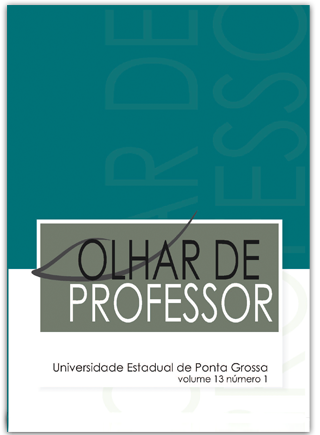Faris Michaele: Trajectory of a modern intellectual
Main Article Content
Abstract
This article aims to analyze Faris Antônio Salomão Michaele’s intellectual trajectory (1911-1977) and discuss his conception of education. Faris Michaele was born in a borough called Mococa which is located in the countryside of Sao Paulo. When he was a child, his family moved to Ponta Grossa where he began to study at Colégio São Luiz (primary school), continued at Colégio Regente Feijó (secondary school) and graduated at Faculdade de Direito do Paraná. Michaele is recognized for participating and directing the creation of many spaces dedicated to culture and education such as Centro Cultural Euclides da Cunha (1947) and Faculdade de Filosofia, Ciências e Letras de Ponta Grossa (1949). He is also known for working as a secondary school teacher and a professor in Higher Education. The analysis of this character is based on Bourdieu and on the correspondences exchanged by Centro Cultural Euclides da Cunha and Faris Michaele. It is also based on the titles that compose his private library as well as on the articles written by him and about him. In the light of Bourdieu’s concepts and on the corpus it is possible to assert that Faris Michaele together with a social class which held the cultural capital established a number of institutions with the purpose of agglutinating part of Campos Gerais intellectuality and disseminating a worldview systematized by philosophy, science, literature and educational doctrines that were associated to the anthropocentric tradition.
Downloads
Article Details
Authors who publish in this journal agree with the following terms:
a) Authors keep the copyrights and concede the right of its first publication to the magazine. The work piece must be simultaneously licensed on the Creative Commons Attribution License which allows the paper sharing, and preserves both the author identity and the right of first publication to this magazine.
b) Authors are authorized to assume additional contracts separately, to not-exclusively distribution of the paper version published in this magazine (e.g.: publish in institutional repository or as a book chapter), with the author identity recognition and its first publication in this magazine.
c) Authors are permitted and stimulated to publish and distribute their papers online (e.g.: in institutional repository or on their personal webpage), considering it can generate productive alterations, as well as increase the impact and the quotations of the published paper.
d) This journal provides public access to all its content, as this allows a greater visibility and reach of published articles and reviews. For more information on this approach, visit the Public Knowledge Project, a project that developed this system to improve the academic and public quality of the research, distributing OJS as well as other software to support the publication system of public access to academic sources.
e) The names and e-mail addresses on this site will be used exclusively for the purposes of the journal and are not available for other purposes.

This work is licensed under a Creative Commons Attribution 4.0 International License.





